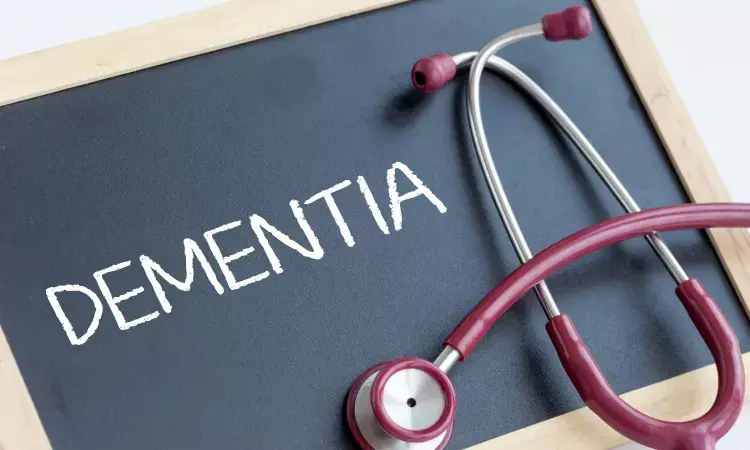- Home
- Medical news & Guidelines
- Anesthesiology
- Cardiology and CTVS
- Critical Care
- Dentistry
- Dermatology
- Diabetes and Endocrinology
- ENT
- Gastroenterology
- Medicine
- Nephrology
- Neurology
- Obstretics-Gynaecology
- Oncology
- Ophthalmology
- Orthopaedics
- Pediatrics-Neonatology
- Psychiatry
- Pulmonology
- Radiology
- Surgery
- Urology
- Laboratory Medicine
- Diet
- Nursing
- Paramedical
- Physiotherapy
- Health news
- Fact Check
- Bone Health Fact Check
- Brain Health Fact Check
- Cancer Related Fact Check
- Child Care Fact Check
- Dental and oral health fact check
- Diabetes and metabolic health fact check
- Diet and Nutrition Fact Check
- Eye and ENT Care Fact Check
- Fitness fact check
- Gut health fact check
- Heart health fact check
- Kidney health fact check
- Medical education fact check
- Men's health fact check
- Respiratory fact check
- Skin and hair care fact check
- Vaccine and Immunization fact check
- Women's health fact check
- AYUSH
- State News
- Andaman and Nicobar Islands
- Andhra Pradesh
- Arunachal Pradesh
- Assam
- Bihar
- Chandigarh
- Chattisgarh
- Dadra and Nagar Haveli
- Daman and Diu
- Delhi
- Goa
- Gujarat
- Haryana
- Himachal Pradesh
- Jammu & Kashmir
- Jharkhand
- Karnataka
- Kerala
- Ladakh
- Lakshadweep
- Madhya Pradesh
- Maharashtra
- Manipur
- Meghalaya
- Mizoram
- Nagaland
- Odisha
- Puducherry
- Punjab
- Rajasthan
- Sikkim
- Tamil Nadu
- Telangana
- Tripura
- Uttar Pradesh
- Uttrakhand
- West Bengal
- Medical Education
- Industry
UQ study explains link between sleep apnoea and dementia

Researchers at The University of Queensland have discovered a link between obstructive sleep apnoea and an increased risk of developing dementia.
Professor Elizabeth Coulson from UQ's Queensland Brain Institute and School of Biomedical Sciences and her team found a causal relationship between a lack of oxygen to the brain during sleep and Alzheimer's disease in mice.
"We found sleep deprivation alone in mice caused only mild cognitive impairment," Professor Coulson said.
"But we developed a novel way to induce sleep-disrupted breathing and found the mice displayed exacerbated pathological features of Alzheimer's disease.
"It demonstrated that hypoxia-when the brain is deprived of oxygen-caused the same selective degeneration of neurons that characteristically die in dementia."
Professor Coulson said the next step would be to determine what levels of hypoxia result in brain degeneration in humans.
"It's estimated around 50 per cent of elderly people have obstructive sleep apnoea, when their throat muscles intermittently collapse and block the airway during sleep causing their breathing to stop and start," she said.
The current gold standard treatment is a CPAP (continuous positive airway pressure) machine, which keeps the airway open during sleep and allows oxygen to the brain.
"We couldn't fit CPAP to mice, but we experimentally prevented the hypoxia and this stopped the cognitive impairment and neuron death, and also reduced the Alzheimer's pathology," Professor Coulson said.
"This suggests that CPAP treatment of obstructive sleep apnoea has the potential to reduce dementia risk."
Professor Coulson said the findings could change the way dementia clinicians diagnose and treat their patients.
"Thirty per cent of people with obstructive sleep apnoea being fitted for CPAP machines already display signs of dementia-like cognitive impairment," she said.
"Unfortunately the hospital system isn't referring those people to dementia clinics.
"Some dementia clinicians have reported their patient's memory has improved after their sleep problems were identified and treated."
Professor Coulson said not everyone with obstructive sleep apnoea would get dementia.
"But we need to define the 'at risk' population," she said.
"Early stage human trials are underway with sleep clinicians in Brisbane and Sydney to determine the correlation between hypoxia and sustained cognitive impairment, and whether CPAP can reduce dementia risk.
"I would strongly recommend anyone with obstructive sleep apnoea use a CPAP machine to maintain cognitive function, as well as assist with other health issues."
The study has been published in Nature Communications.
Dr Kamal Kant Kohli-MBBS, DTCD- a chest specialist with more than 30 years of practice and a flair for writing clinical articles, Dr Kamal Kant Kohli joined Medical Dialogues as a Chief Editor of Medical News. Besides writing articles, as an editor, he proofreads and verifies all the medical content published on Medical Dialogues including those coming from journals, studies,medical conferences,guidelines etc. Email: drkohli@medicaldialogues.in. Contact no. 011-43720751


